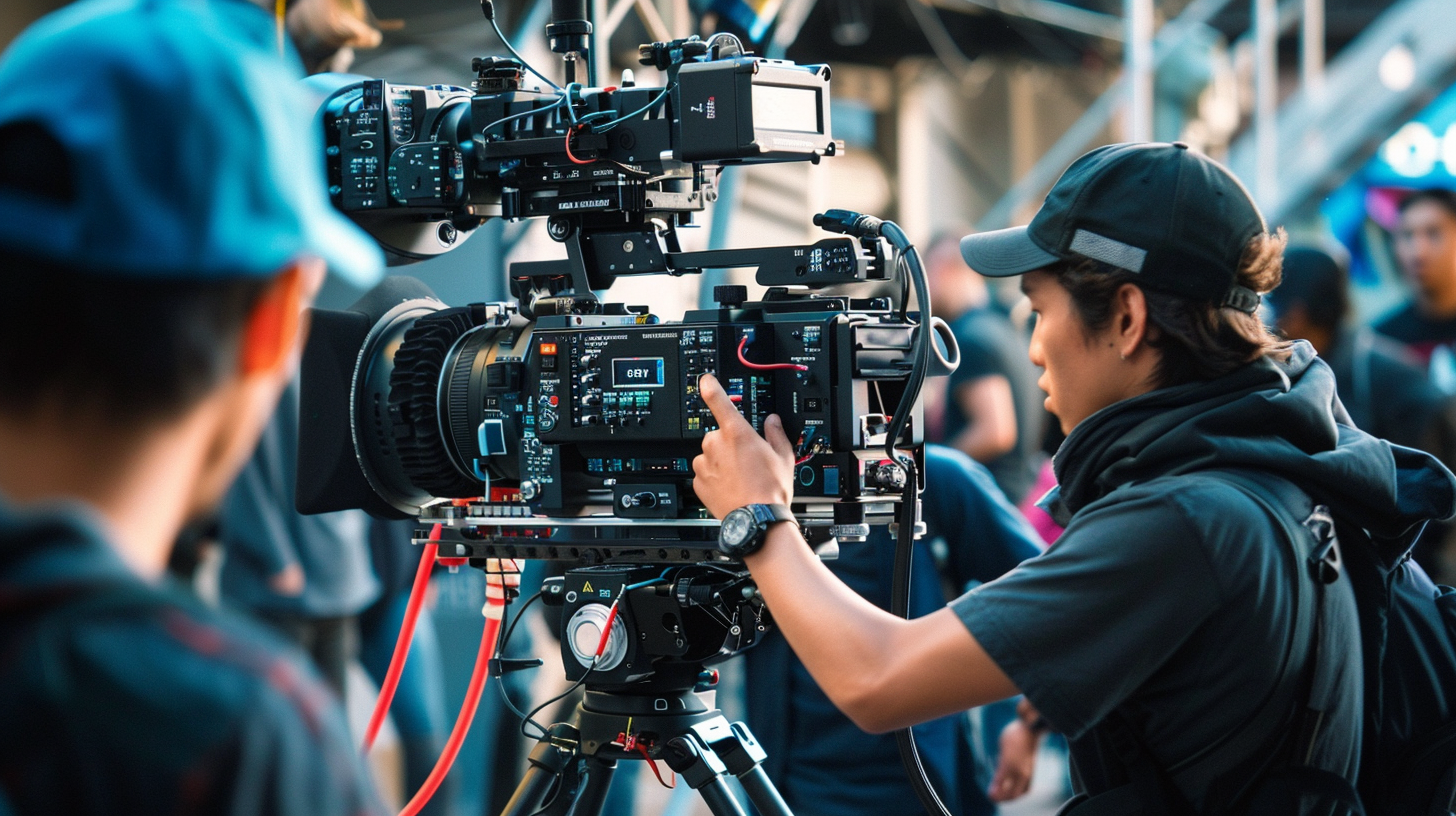Table of Contents Show
In the world of sports, the line between victory and defeat is as thin as it is defining, yet the use of performance-enhancing drugs (PEDs) blurs this boundary, challenging our perceptions of fairness and achievement. We’ve all witnessed the glory of triumph and the agony of defeat, but at what cost does this victory come? As we explore the ethical dilemmas and accountability surrounding PEDs, we must ask ourselves where we draw the line between natural talent and chemically enhanced performance. Join us as we navigate this complex issue, uncovering the implications not only for athletes but for the very integrity of sports itself.
Key Takeaways
- Performance-enhancing drugs compromise sports integrity, questioning the authenticity of competition and achievements.
- Health risks and legal consequences pose significant threats to athletes using PEDs.
- Cultivating a culture of integrity and accountability is crucial in combating the use of PEDs in sports.
- Education, transparent testing, and promoting alternatives are key strategies to uphold fairness and integrity in sports.
The Allure of Victory
Why do athletes turn to performance-enhancing drugs, if not for the intoxicating allure of victory? It’s the magnetic pull of standing atop the podium, the addictive buzz of breaking records, and the irresistible promise of becoming legends in their own time. Athletes, on their quest for greatness, sometimes cross the fine line between pushing the limits and breaking the rules.
We can’t ignore the immense pressure they face, the expectations from fans, sponsors, and their own relentless ambition. It’s a high-stakes game where second place is often forgotten. In this scenario, the temptation to gain an edge, any edge, can be overwhelming. We’re living in a time when the freedom to choose one’s path is celebrated, yet the choices athletes make in their pursuit of victory are scrutinized under the harshest of lights.
It’s not just about the physical advantages; it’s the mental edge, the confidence that comes from knowing you’ve done everything in your power to win. We comprehend the drive, the need to break barriers, to redefine what’s possible. But it’s essential we remember the spirit of competition, the integrity of sport.
We advocate for a world where athletes feel free to pursue excellence without compromising their values or their health. The allure of victory should inspire greatness, not shortcuts. As fans, we crave epic battles fought with honor, where the true victor is the one who’s mastered their craft through hard work, dedication, and an unwavering commitment to fair play.
Defining Performance-Enhancing Drugs
While we admire the relentless pursuit of greatness, it’s imperative to understand what performance-enhancing drugs actually are. At their core, they’re substances athletes use to boost their physical abilities beyond what’s naturally possible. We’re talking about more than just a competitive edge. These aren’t your everyday multivitamins or protein shakes. We’re diving into the world of steroids, hormones, and other synthetic marvels designed to supercharge human performance.
Let’s break it down further. Steroids, for instance, are notorious for their ability to rapidly increase muscle mass and reduce recovery time. Then there’s erythropoietin, a favorite among endurance athletes, enhancing oxygen delivery to muscles and vastly improving stamina. And we can’t overlook stimulants; they sharpen focus and decrease fatigue, allowing athletes to push harder and longer.
It’s a complex world. The allure of standing on that podium, breaking that record, or simply being the best can be intoxicating. But here’s where we must tread carefully. The freedom to push our limits comes with the responsibility to do so within the boundaries of fairness and health. We advocate for a level playing field where achievements are the result of hard work, strategy, and natural talent.
Understanding what constitutes performance-enhancing drugs is vital in this ongoing discourse. It’s not just about naming and shaming; it’s about fostering an environment where excellence in sports remains untainted by shortcuts. As we continue to explore this topic, let’s commit to promoting integrity and accountability in every arena.
Historical Perspective on PED Use
The use of performance-enhancing drugs (PEDs) in sports is not a modern phenomenon, tracing its roots back to ancient civilizations where athletes sought an edge in competition. We’ve always aimed for excellence, delving into some pivotal moments that highlight this journey.
| Era | Substance | Purpose |
|---|---|---|
| Ancient Greece | Herbal concoctions | Increase stamina and strength |
| 19th Century | Caffeine, Cocaine | Boost endurance, reduce fatigue |
| 1950s | Anabolic Steroids | Enhance muscle growth and recovery |
| 1980s | Erythropoietin (EPO) | Improve endurance by increasing red blood cell count |
These examples paint a picture of humanity’s relentless pursuit of physical prowess. From herbal concoctions in Ancient Greece to sophisticated blood doping in the late 20th century, athletes have always sought ways to enhance their performance. This isn’t just about the pursuit of victory; it’s a reflection of our innate desire to explore the limits of human potential. As we move forward, it’s vital we remember this history—not to condone unethical behavior, but to understand the complexity of human nature and the eternal quest for excellence. It’s a reminder that, in the domain of competition, the desire for freedom—to push our bodies and minds to their utmost capabilities—has always been a driving force.
Ethical Dilemmas in Sports
Delving into ethical dilemmas in sports, we encounter complex issues surrounding the fair use of performance-enhancing drugs. It’s not just about gaining a competitive edge; it’s about the values we uphold in the arena of sportsmanship. We’re faced with questions that challenge our integrity and the very essence of competition. Is it fair to allow some athletes to use these substances under medical supervision while others, perhaps with less access to healthcare, are left at a disadvantage? We’re treading a thin line between enhancing performance and preserving the health and safety of athletes.
Furthermore, we’ve got **the message we’re sending to younger generations. Are we implying that success can only be achieved through artificial means? It’s a slippery slope, and we’re keen on maintaining a level playing field where talent, hard work, and determination are the pillars of success, not the substances one can afford or access.
The ethical conundrum also extends the accountability of coaches, medical staff, and sports organizations. Their role in either condoning or condemning the use of performance-enhancing drugs puts them at the forefront of this ethical battleground. We’re advocating for transparency, strict regulation, and a collective effort uphold the integrity of sports. It’s about fostering an environment where athletes can compete safely, fairly, and on their own merit. We’re not just fighting for the soul of sports; we’re fighting for the future of fair play and the values we wish ** instill in athletes and fans alike.
The Fairness Debate
We’re now turning our attention to the fairness debate, where the use of performance-enhancing drugs raises significant questions. Do these substances erode the concept of equal opportunities, tipping the balance unfairly? We’ll explore the tension between natural talent and chemical enhancement, questioning where merit truly lies in the domain of sports.
Equal Opportunities Questioned
Many argue that the use of performance-enhancing drugs in sports undermines the principle of equal opportunities for all athletes. We believe in a level playing field where talent, hard work, and determination are the cornerstones of success. When some competitors resort to these substances, they’re not just cheating the system; they’re robbing every athlete of the genuine opportunity to prove their worth. It’s not just about the medals and accolades. It’s about the integrity of the competition and the spirit of fairness that sports are supposed to embody. We stand for an athletic environment where freedom and fairness aren’t just ideals but realities. Let’s guarantee that every athlete has the same chance to shine, unshadowed by the specter of artificial enhancement.
Merit Vs. Enhancement Debate
Building on our commitment to fairness, it’s important to examine the merit versus enhancement debate that lies at the heart of sporting integrity. We believe in a level playing field where talent, hard work, and dedication define success, rather than reliance on artificial means. The essence of sports is competition at its purest, where victories are earned, not chemically engineered. This debate isn’t just about rules; it’s about the spirit of the game. When athletes use performance-enhancing drugs, they’re not just breaking the law; they’re undermining the very values that make sports inspiring. We’re advocating for a sports culture that celebrates authentic achievement and holds the principle of merit sacred. Let’s champion the cause for cleaner, fairer competition, where freedom and integrity reign supreme.
Health Risks for Athletes
The use of performance-enhancing drugs poses significant health risks to athletes, including heart problems, liver damage, and hormonal imbalances. We’ve seen time and again how the pursuit of glory, when tainted by these substances, can lead to a dangerous path. It’s not just about the medals and the momentary fame; it’s about the long-term consequences that can haunt an athlete’s life.
We must consider the real price of such choices:
-
Heart Problems: Imagine the heart, the very engine of life, being overworked and strained beyond its natural capacity. Athletes using stimulants or steroids are pushing their hearts to the brink, risking heart attacks and hypertension.
-
Liver Damage: The liver, our body’s detoxifier, faces a relentless assault from oral steroids. This can lead to liver tumors and a condition known as peliosis hepatis, where blood-filled cysts replace liver and spleen tissue.
-
Hormonal Imbalances: The delicate balance of hormones is thrown into chaos, leading to issues like infertility, mood disorders, and even the onset of secondary sexual characteristics of the opposite sex.
We’re advocating for our freedom to choose, yes, but let’s not forget the freedom from irreversible damage. It’s our responsibility to weigh the fleeting highs against the potential for lifelong lows. Let’s champion a culture in sports where integrity and health stand above all, ensuring that the legacy we leave is one of honor, not cautionary tales.
The Role of Sports Organizations
We’ve explored the health risks athletes face with performance-enhancing drugs; now, let’s turn our attention to how sports organizations play an essential part in this issue. They’re tasked with implementing anti-doping policies and ensuring that fair play standards are upheld. This is important in maintaining the integrity and competitive balance of sports.
Implementing Anti-Doping Policies
Sports organizations play a crucial role in implementing anti-doping policies to guarantee fair play and athlete health. We’re on the front lines, ensuring that the spirit of competition remains untainted by the shadow of performance-enhancing drugs (PEDs). Our commitment to clean sports drives us to adopt thorough strategies that not only detect but also deter the use of banned substances.
To bring this vision to life, we focus on three key areas:
- Education: We equip athletes and their support teams with the knowledge they need to make informed decisions, emphasizing the importance of integrity in competition.
- Testing: Rigorous and random drug tests are conducted regularly to maintain a level playing field.
- Rehabilitation programs: For those who’ve strayed, we offer paths back to competition, stressing accountability and the value of competing clean.
Ensuring Fair Play Standards
As we strengthen our anti-doping policies, it’s equally important to focus on upholding fair play standards across all sports competitions. Sports organizations play a vital role in ensuring athletes compete on a level playing field, fostering an environment where talent and hard work define success.
| Role of Sports Organizations | Impact on Fair Play |
|---|---|
| Implementing strict anti-doping measures | Guarantees all athletes are subject to the same rules |
| Promoting education on the harms of doping | Encourages athletes to seek natural performance enhancement |
| Regularly updating rules to adapt to new doping methods | Keeps the competition fair and current |
| Enforcing penalties for rule violations | Deters athletes from attempting to gain an unfair advantage |
| Collaborating internationally to standardize anti-doping efforts | Creates a global standard for fairness and integrity |
We’re committed to making sports a symbol of pure competition, where freedom and fairness reign supreme.
Testing and Detection Challenges
Detecting performance-enhancing drugs presents numerous challenges, despite advancements in testing technology. We’re constantly in a race against those determined to stay one step ahead of the current detection methods. It’s a dynamic battle, with both sides innovating to either outsmart the system or to safeguard the integrity of sports.
Here are three major hurdles we face:
-
Guiding Substances: New performance-enhancing drugs and masking agents are developed at a pace that often outstrips the ability of regulatory bodies to detect them. This cat-and-mouse game means we’re always playing catch-up, trying to identify and test for the latest compounds.
-
Biological Passports: While athlete biological passports have been a step forward, they’re not foolproof. Variations in natural physiology can sometimes obscure the signs of doping, and sophisticated dopers have found ways to mimic ‘normal’ biological markers.
-
Limited Resources: Thorough testing is expensive, and not all organizations have the resources to conduct extensive out-of-competition testing. This financial constraint opens a window for those willing to exploit the system, knowing they’re less likely to be tested outside of competition periods.
We’re committed to guiding these challenges, driven by the belief that sports should be a space of fair competition and individual freedom. Our goal isn’t just to catch those who cheat but to preserve the spirit of sportsmanship. It’s a challenging task, but one we approach with determination and a commitment to the principles of fairness and freedom that underpin the world of sports.
Legal Ramifications of PED Use
We’ve covered the challenges in testing and detecting PED use; now, let’s turn our focus to the legal consequences athletes face when caught. The landscape of anti-doping laws provides a complex framework that we’ll explore, including the various repercussions athletes may encounter. Understanding these legal aspects is essential for both athletes and the sports industry as a whole.
Anti-Doping Laws Overview
Athletes caught using performance-enhancing drugs (PEDs) face significant legal consequences under anti-doping laws. We recognize the importance of freedom in sports, yet it is crucial to understand how these laws aim to guarantee fair play and integrity. To navigate this landscape, here’s what we must consider:
- Global Standards: Anti-doping laws aren’t confined by borders; they’re universal, guided by the World Anti-Doping Agency (WADA).
- Testing Protocols: Athletes are subject to random testing, ensuring everyone is held to the same standard.
- Right to Appeal: If accused, athletes have the right to defend themselves, preserving their freedom and ensuring justice.
Consequences for Athletes
Upon testing positive for performance-enhancing drugs, an athlete can face severe legal consequences, including bans from competition and fines. It’s a tough reality we can’t ignore. These sanctions not only strip away the chance to compete but also tarnish reputations, potentially ending careers. We’re talking about a significant blow to one’s freedom to pursue excellence in their chosen field. Additionally, the fines imposed can be hefty, digging deep into an athlete’s earnings. It’s a clear message: the cost of cheating extends far beyond the immediate gains. We believe in fair play and the integrity of sports. Let’s champion these values, ensuring everyone competes on a level playing field. After all, it’s the freedom to compete fairly that makes sports truly exhilarating.
The Impact on Young Athletes
Often, young athletes face immense pressure to excel, leading some to ponder performance-enhancing drugs as a shortcut to success. The allure of standing atop the podium or securing a lucrative sponsorship deal can cloud judgment, making the risks seem worth the potential rewards. However, we must consider the profound impact this choice can have on their lives and careers.
Imagine the following scenarios:
-
A Promising Future Derailed: A teenager with Olympic dreams tests positive for banned substances. Overnight, their reputation is tarnished, scholarships are revoked, and the path to professional sports becomes a steep uphill battle.
-
Health Compromised for Victory: An aspiring athlete, convinced that performance-enhancing drugs are the only way to keep up, develops long-term health issues. They’re left grappling with consequences like hormonal imbalances and heart problems, long after the cheers have faded.
-
The Loss of Pure Joy: Remember the first time you played a sport just for the love of the game? Young athletes caught in the cycle of drug use lose this innocence. The pressure to win at all costs replaces the simple joy of playing, forever altering their relationship with the sport.
We’re in this together, seeking a world where young athletes can chase their dreams without sacrificing their integrity, health, or the pure joy of competition. It’s about championing a sports culture that values effort and fair play over winning at any cost. Let’s empower them to believe in their natural abilities and to understand that true victory lies in the journey, not just the outcome.
Cultivating a Culture of Integrity
We must focus on promoting ethical practices and ensuring fair competition in the world of sports. By doing so, we’re not just setting a standard, but also protecting the essence of sportsmanship. It’s our collective responsibility to foster an environment where integrity is non-negotiable.
Promoting Ethical Practices
To promote ethical practices in sports, it’s imperative that we cultivate a culture of integrity among athletes and organizations alike. This isn’t just about adhering to rules; it’s about embodying the spirit of true competition and respect. It’s our shared responsibility to guarantee that sports remain a proof of human potential and fair play.
- Education and Awareness: We must educate athletes on the dangers and ethical implications of performance-enhancing drugs.
- Transparent Accountability Measures: Implementing clear consequences for violations encourages honesty and integrity.
- Role Modeling: Celebrate and spotlight those who exemplify ethical behavior, providing aspirational figures for upcoming athletes.
Ensuring Fair Competition
Ensuring fair competition demands that we foster a culture of integrity, where every athlete competes on a level playing field. We’ve got to hold ourselves and our peers accountable, ensuring that no one gains an unfair advantage through the use of performance-enhancing drugs. It’s about more than just following the rules; it’s about respecting the spirit of sport itself. We’re committed to educating athletes, coaches, and fans about the risks and consequences of doping. By promoting transparency and open dialogue, we’re creating an environment where honesty thrives. Let’s champion the true essence of competition, where victories are earned through hard work and dedication. Together, we can uphold the values that make sports truly great, ensuring freedom and fairness for all.
Alternatives to Performance Enhancement
Athletes often seek out natural and legal methods to boost their performance, avoiding the risks associated with banned substances. We’re in an era where the pursuit of excellence doesn’t have to compromise our integrity or health. It’s about finding a balance that respects both the spirit of competition and our own bodies.
Here are three powerful, natural alternatives that we can embrace:
-
Nutrition Optimization: It’s not just about what we eat, but how we fuel our bodies. A diet rich in proteins, vitamins, and minerals can greatly enhance our natural stamina and recovery rates. Think of food as your fuel; the higher the quality, the better your performance engine runs.
-
Advanced Training Techniques: We’re living in a golden age of sports science. Utilizing cutting-edge training methods like high-intensity interval training (HIIT), plyometrics, and mental conditioning can boost an athlete’s performance without the need for any external substances. It’s about working smarter, not just harder.
-
Sleep and Recovery: Often underestimated, the power of a good night’s sleep and proper rest cannot be overstated. It’s during these periods of rest that our bodies repair and strengthen. Ignoring recovery is like trying to drive a car without ever stopping for maintenance; eventually, it’ll break down.
We’ve got the freedom to choose how we enhance our performance. By focusing on these natural and sustainable methods, we’re not just respecting the rules of the game; we’re honoring our own health and potential. Let’s champion these alternatives and lead by example in the world of sports.
Athlete Accountability and Responsibility
In the domain of competitive sports, we must recognize that the responsibility for maintaining fairness and integrity ultimately falls on the shoulders of the athletes themselves. As proponents of sportsmanship and fairness, we’re well aware that the journey to excellence is fraught with temptations to seek shortcuts. However, we uphold the belief that true victory lies not just in the accolades and medals, but in the honesty and dedication poured into every drop of sweat.
Athletes, as the primary actors in this arena, carry the weight of their choices. It’s not just about playing by the rules but embracing them as the foundation of their professional ethos. The decision to steer clear of performance-enhancing drugs (PEDs) isn’t solely a personal choice; it’s a demonstration to their commitment to the spirit of competition. We’re in this together, advocating for a sports world where freedom means the liberty to compete on equal footing, unmarred by the shadow of PEDs.
To encapsulate these ideas, let’s visualize them:
| Aspect | Responsibility | Outcome |
|---|---|---|
| Integrity | Adherence to rules | Fair competition |
| Health | Avoiding PEDs | Long-term wellness |
| Legacy | Ethical choices | Respected career |
| Team Dynamics | Honesty with peers | Stronger bonds |
| Public Image | Transparency | Trust with fans |
Embracing accountability isn’t just about avoiding the negative; it’s a proactive stance towards fostering a culture of integrity and respect. It’s a declaration that we’re all in for the love of the game, valuing the journey as much as the destination.
Fan Perspectives on PEDs
Having explored the athlete’s role in maintaining the integrity of sports, we’ll now examine how fans perceive the use of performance-enhancing drugs. It is crucial to understand that fans, when it comes to their pursuit of pure competition and remarkable athletic feats, often find themselves at a crossroads when it comes to PEDs. Our love for sports is intertwined with the desire for fairness, making our stance on performance-enhancing drugs a complex one.
-
The Quest for Authenticity: We crave authentic competition. Witnessing athletes break records and achieve the impossible fuels our passion for sports. However, when PEDs enter the equation, we can’t help but question the legitimacy of these accomplishments. It is as if the essence of sportsmanship is diluted, leaving us to wonder what’s real and what’s chemically enhanced.
-
The Integrity of the Game: We hold the integrity of sports in high regard. The moment an athlete decides to use PEDs, it feels like a breach of trust. We invest time, emotion, and sometimes even our identity in our favorite teams and athletes. To find out that an athlete has used PEDs is akin to discovering that the competition we’ve been following so ardently might be tainted.
-
The Desire for a Level Playing Field: Above all, we yearn for fairness. The thought of athletes gaining an unfair advantage through PEDs disturbs us deeply. We want to believe that hard work, talent, and determination are the sole determinants of success in sports.
In essence, our perspective on PEDs is driven by a strong desire for authenticity, integrity, and fairness in sports. We seek a competition that celebrates human potential, not one overshadowed by the specter of artificial enhancement.
Moving Forward: Solutions and Strategies
To effectively address the challenge of performance-enhancing drugs in sports, we must explore thorough strategies and practical solutions that guarantee fairness and integrity. We’re at a critical juncture where the spirit of competition is at stake, and it’s our responsibility to safeguard the essence of sports. Let’s delve into how we can move forward, ensuring every athlete has the freedom to compete on a level playing field.
To start with, we need to enhance our detection methods. We’re talking about investing in cutting-edge technology that can catch cheaters in their tracks. It’s not just about being one step ahead; it’s about ensuring that the fear of getting caught deters athletes from even considering PEDs.
Education plays a pivotal role in our fight against PEDs. We’ve got to instill an understanding of the risks and consequences from a young age. Let’s make it clear that the pursuit of victory at the cost of one’s health and integrity is a hollow triumph.
Transparency in the testing process is non-negotiable. Athletes, teams, and fans deserve to know that the competitions they train for, participate in, and watch are free from the taint of performance-enhancing drugs. We’re talking open records, clear procedures, and no room for doubt.
To end with, we need to foster a culture that celebrates natural talent and hard work over shortcuts. Let’s champion the stories of athletes who’ve reached the pinnacle of their sport through sheer determination and perseverance.
Conclusion
To sum up, we’ve navigated the murky waters of performance-enhancing drugs together, uncovering their allure, ethical quandaries, and the quest for fairness. As fans, athletes, and stewards of sportsmanship, it’s our shared journey to champion integrity over quick victories. Let’s forge ahead, embracing solutions that honor the true spirit of competition. After all, the sweetest victories are those won fair and square, echoing in the halls of history long after the cheers fade. Together, we can redefine greatness.








